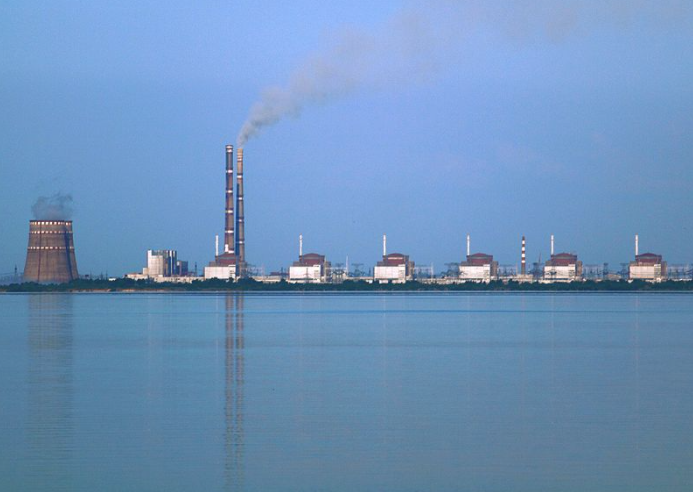Europe's largest nuclear power plant in Ukraine caught fire early Friday morning following an attack by the Russian troops. The Zaporizhzhia nuclear power plant in Enerhodar, a city on the Dnipro River, is the largest of its kind in Europe. It accounts for about one-quarter of Ukraine's power generation. The city's Mayor Dmytro Orlov confirmed the reports of the plant catching fire, Kyiv Independent reported.
Quoting a government official, AP reported that increased levels of radiation were detected near the site of the Zaporizhzhia nuclear plant. Plant spokesman Andriy Tuz also stressed that it was important to stop the fight to put out the flames immediately while talking to Ukrainian Television. Zaporizhzhia is the largest of Ukraine's nuclear sites. It has six out of the country's 15 reactors.
A live feed from the plant showed flames at the site sparking fears of a radiation disaster. Mayor, Dmytro Orlov noted that there had been intense fighting between the Russian troops and the locals near the site. He reported casualties in the fight without delving into details.

The plant, which has six nuclear reactors, saw 'shooting from all sides.' "As a result of continuous enemy shelling of buildings and units of the largest nuclear power plant in Europe, the Zaporizhzhia nuclear power plant is on fire," Orlov informed in his Telegram channel.
What Would Happen If Zaporizhzhia Nuclear Power Plant Blew Up?
Ukraine's Foreign Minister, Dmytro Kuleba warned that if the Zaporizhzhia nuclear power plant blows up in the attack, 'it will be 10 times larger than Chernobyl.' He called upon the Russian forces to a ceasefire and allow firefighters to establish a security zone around the plant.
The Chernobyl accident in 1986, which is called the world's worst nuclear disaster prompted the death of at least 50 people and around 4,000 were severely affected by radiation-related causes. Russia has already seized the decommissioned Chernobyl plant.
Greenpeace International specialists found in their research that if explosions destroy the reactor containment and cooling systems at Zaporizhzhia, the resulting disaster would outstretch the Fukushima in Japan in 2011.









